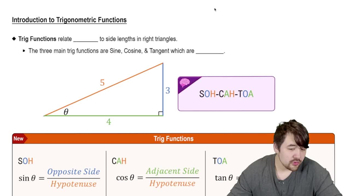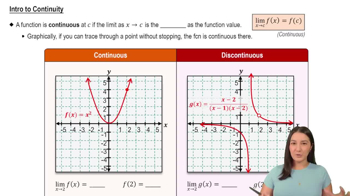Limits and Continuity
In Exercises 5 and 6, find the value that lim (x→0) g(x) must have if the given limit statements hold.
lim (x lim g(x)) = 2
x→-4 x→0
 Verified step by step guidance
Verified step by step guidance Verified video answer for a similar problem:
Verified video answer for a similar problem:



 5:21m
5:21mMaster Finding Limits by Direct Substitution with a bite sized video explanation from Patrick
Start learning